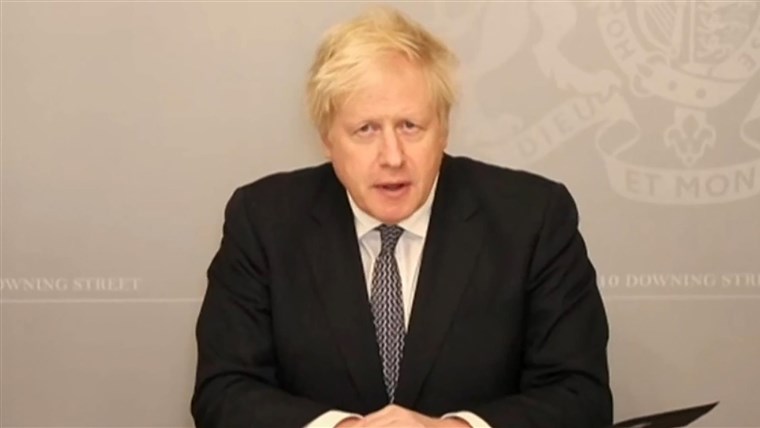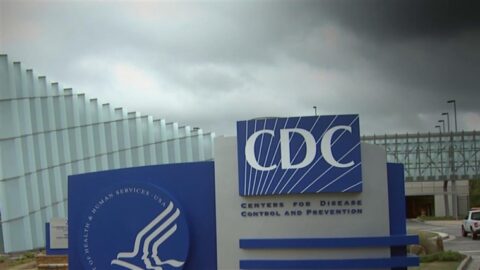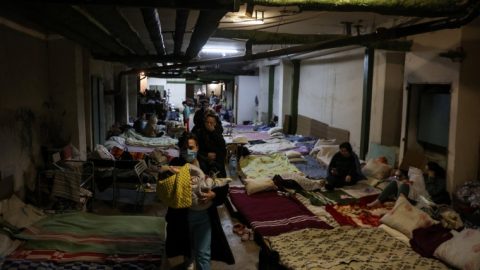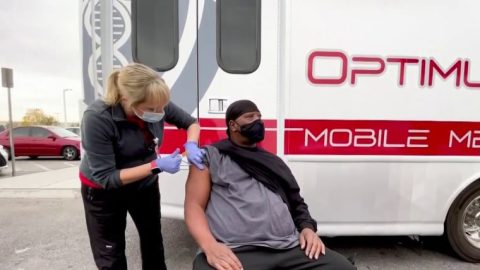LONDON — British Prime Minister Boris Johnson may have felt giving England a five-day Christmas respite from pandemic restrictions would lift the national mood.
Experts are warning, however, that this holiday gift is likely to turn deadly.
It was a promise Johnson made three weeks ago, while Covid-19 cases were falling. He said that up to three households would be able to mix indoors for five days ending Dec. 28. Now cases are rising again, and he is resisting calls to reconsider.
This mean that the U.K.’s Christmas rules will be more lenient than in Germany, France, Spain and Italy, which have all tightened restrictions recently — even though cases in Britain are rising faster than in any of those countries, according to data analyzed by the University of Oxford.
The government was already under intense scrutiny for what many say has been a repeated mishandling of the crisis. More than 66,000 people have died — leaving the U.K. with one of the highest per capita death tolls in the world.
This week around two thirds of the country — some 38 million people — were placed into “tier 3” restrictions, or very high alert. That means groups of no more than six can mix only in public spaces, not private gardens, and bars and restaurants must close except for deliveries.
Experts say that to suddenly lurch from these measures to relaxed restrictions over Christmas will lead to more cases, more restrictions in the new year, and inevitably more deaths.
“The government was too slow to introduce restrictions in the spring and again in the autumn. It should now reverse its rash decision to allow household mixing,” the British Medical Journal and Health Service Journal said in a joint editorial this week.
It was only the second time in the publications’ 100-year history that they had collaborated for an op-ed.
“We are publishing it because we believe the government is about to blunder into another major error that will cost many lives,” they said. “If our political leaders fail to take swift and decisive action, they can no longer claim to be ‘protecting the NHS.'”
Protecting the NHS — Britain’s beloved but squeezed National Health Service — has been a mantra for government and citizenry alike during the pandemic. One prominent supporter is Justin Bieber, who has teamed up with a choir of health care workers from the Lewisham and Greenwich NHS Trust, in south London, for a charity Christmas single.
Five years ago, they were rivals for the No. 1 Christmas song in the U.K., before Bieber, 26, eventually urged his fans to buy the NHS single instead. He said in a statement he was “humbled” to collaborate with those “on the front lines of this pandemic and pay tribute to their unbelievable dedication.”
Many doctors on the ground, however, are accusing Johnson’s government of failing to take the necessary action. Ambulances have been seen lined up outside hospitals, many of which have had to cancel surgeries and other noncoronavirus activities because their beds are filling up.
Download the NBC News app for the latest news on the coronavirus
“It’s a really worrying sign that hospitals are saying they may not be able to cope,” said Rowland Kao, a professor of veterinary epidemiology and data science at the University of Edinburgh. “That makes epidemiologists very concerned.”
But the government is most likely not just grappling with which policies would work best in theory, Kao said, but also people’s willingness to follow them.
Johnson’s government has been accused of imposing restrictions too late; of favoring the personal contacts of Cabinet ministers and lawmakers when awarding lucrative health care procurement contracts; and of hypocrisy, refusing to fire Dominic Cummings, Boris Johnson’s top adviser, for example, after he drove the length of the country during lockdown despite feeling unwell.
“It’s clear there have been events over the past year that have made the government less trustworthy in the eyes of the public,” Kao said. This Christmas, the government would have to consider “what is the inherent capacity to listen, and what is the remaining level of trust you need to enact these things,” he said.
A YouGov poll for Britain’s The Times newspaper suggested that around 1 in 4 people would be willing to break even the rules that have been imposed, either by including an extra household or staying an extra day.
When Johnson announced the Christmas relaxation three weeks ago, cases were falling during Britain’s second nationwide lockdown of the year. Now Dec. 25 is a week away, and the system of tiered regional restrictions don’t appear to be dampening the virus’ resurgence.
Wales and Northern Ireland, which run their own health care systems, have announced they will immediately go into lockdown on Dec. 28. And Scotland is considering doing the same.
It has meant Johnson and his advisers find themselves in the curious position of advising people to think twice before following the government’s own rules.
The prime minister said three households should be seen as a “maximum” and his chief medical officer, Chris Whitty, on Wednesday compared the situation to driving at the maximum speed limit on an icy freeway: “Just because you can doesn’t mean you should.”
Supporters of Johnson’s policy say that many people would be willing to accept the risks of spending Christmas with their families after a bleak year. They argue that to do a U-turn at the last minute would also cause mayhem for many families, who have booked car hires and trains.
“Relying on people to make their own decisions is a rational approach and one that helps puncture some of the hysteria around this matter,” the Daily Telegraph, a right-wing newspaper that used to carry a column by Johnson and is often sympathetic to the Conservative prime minister, said in an editorial.










Recent Comments